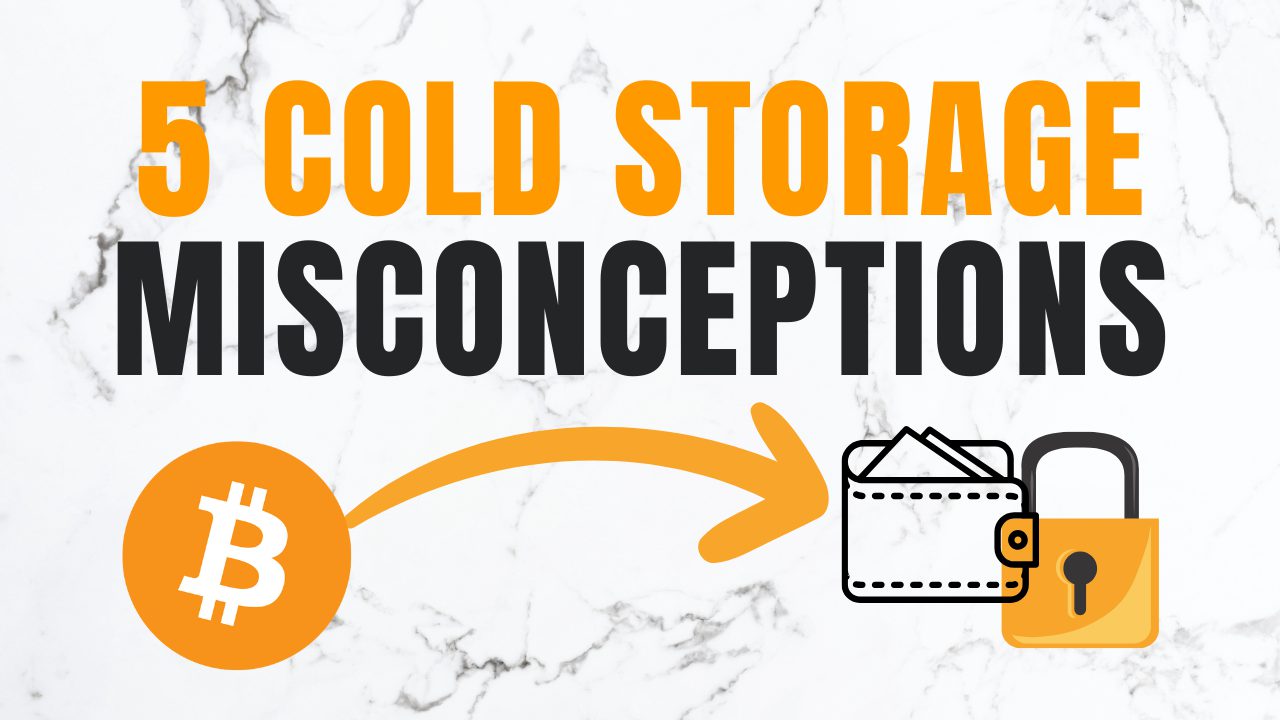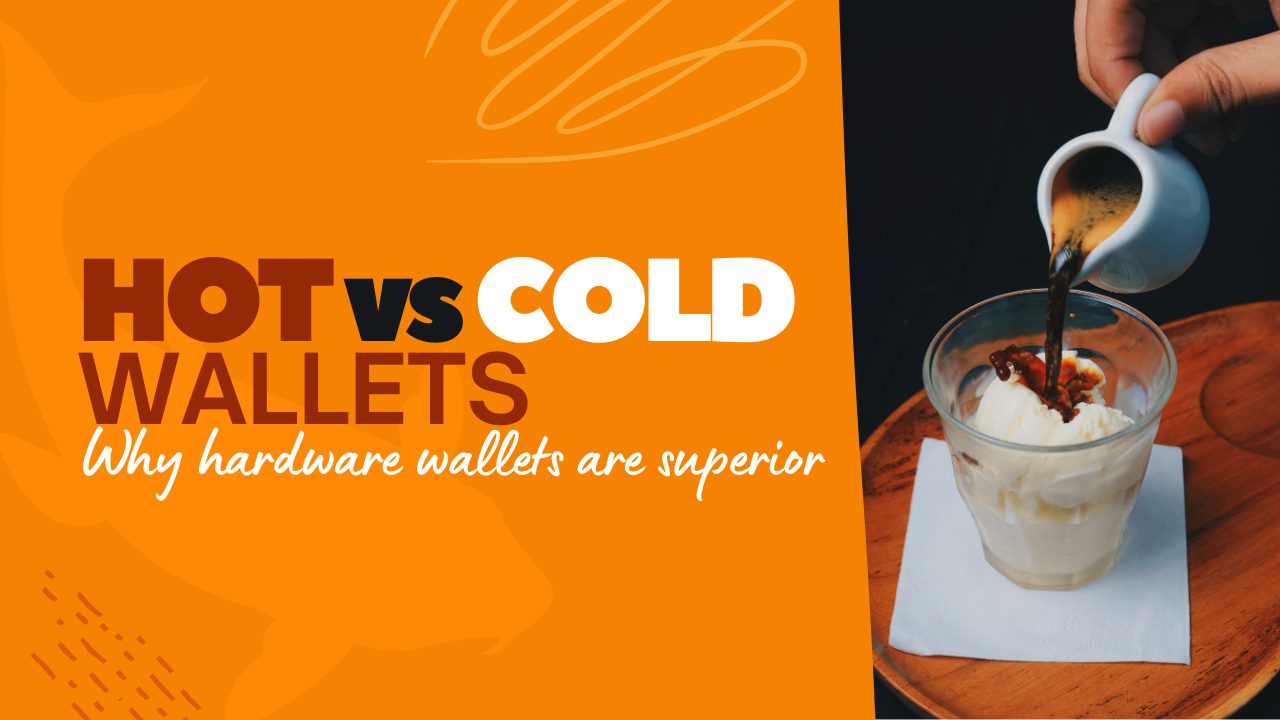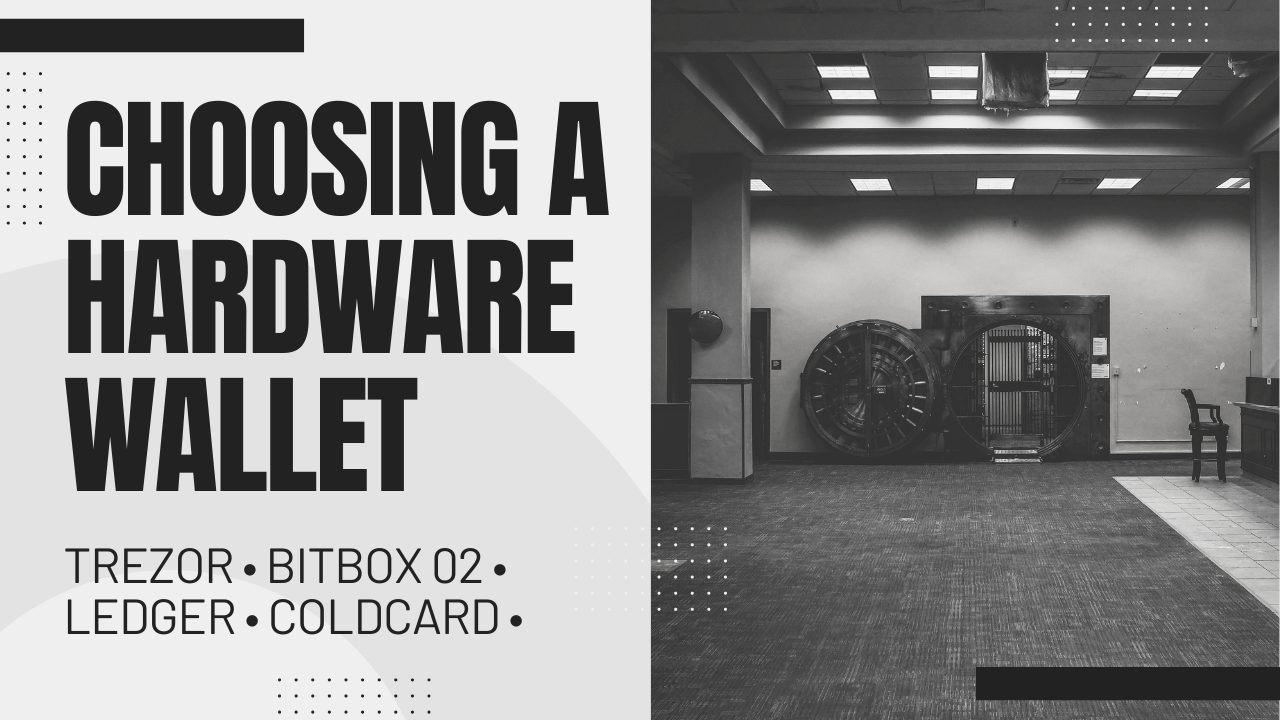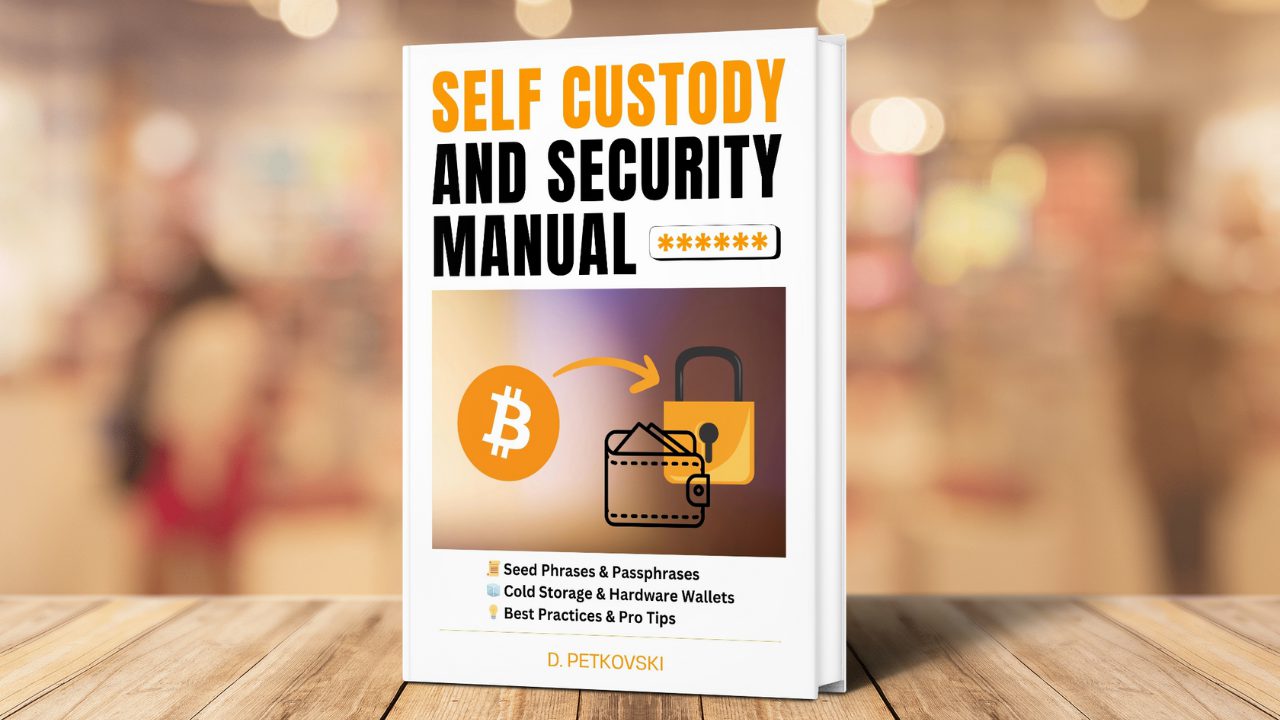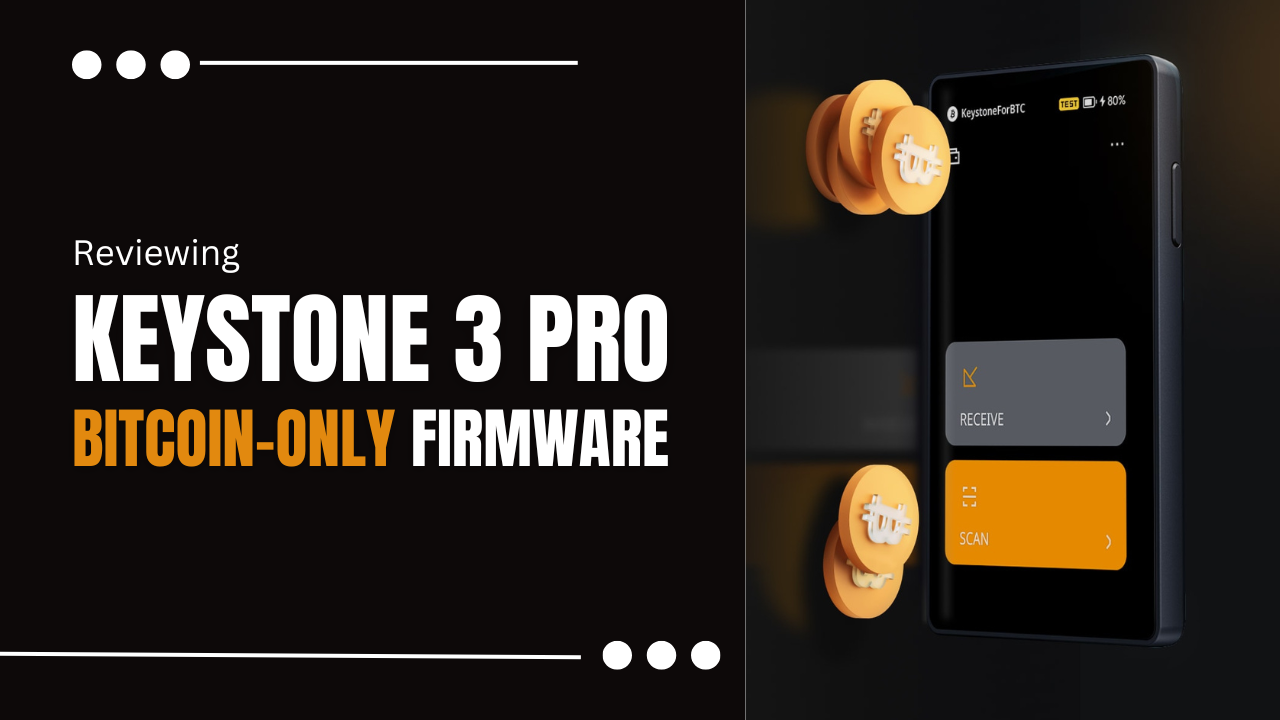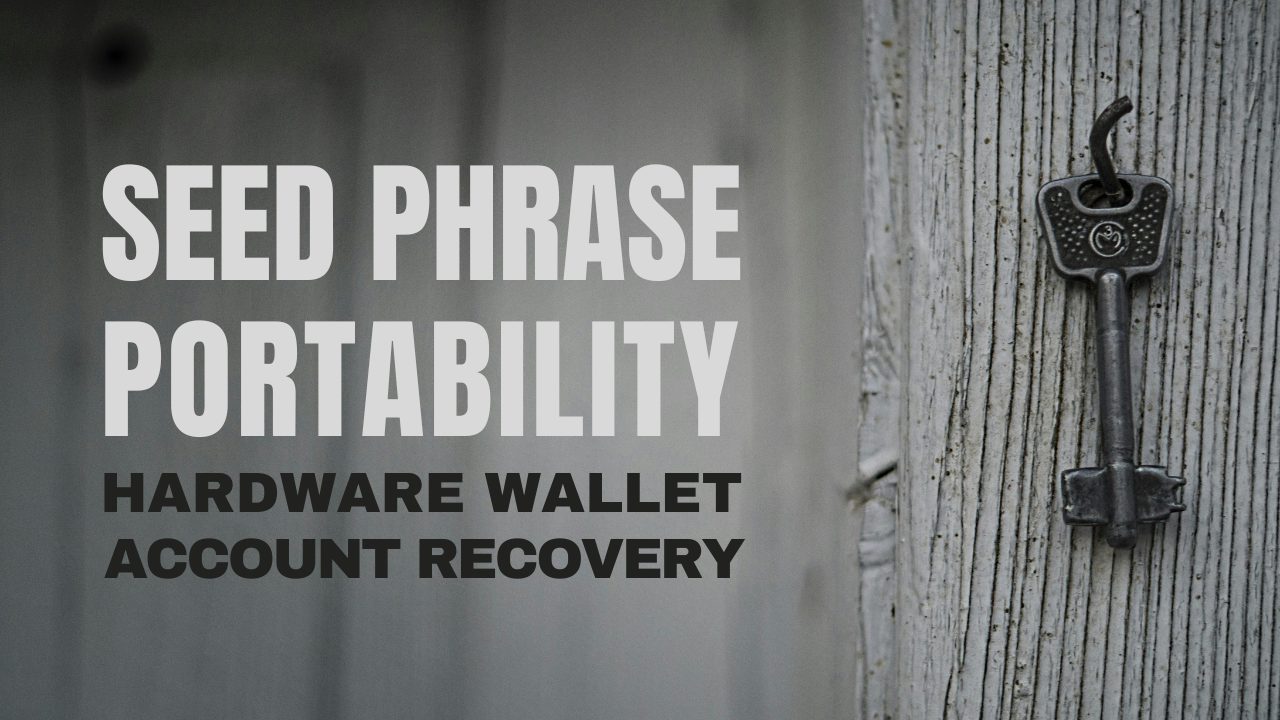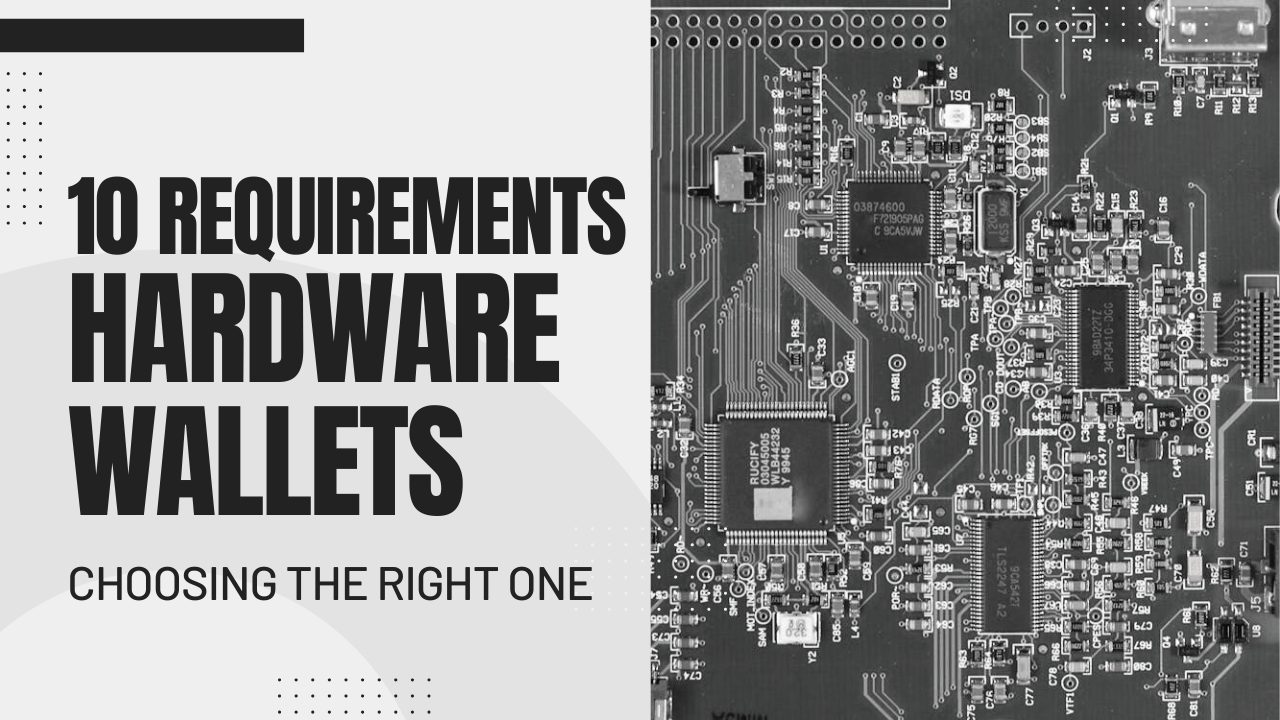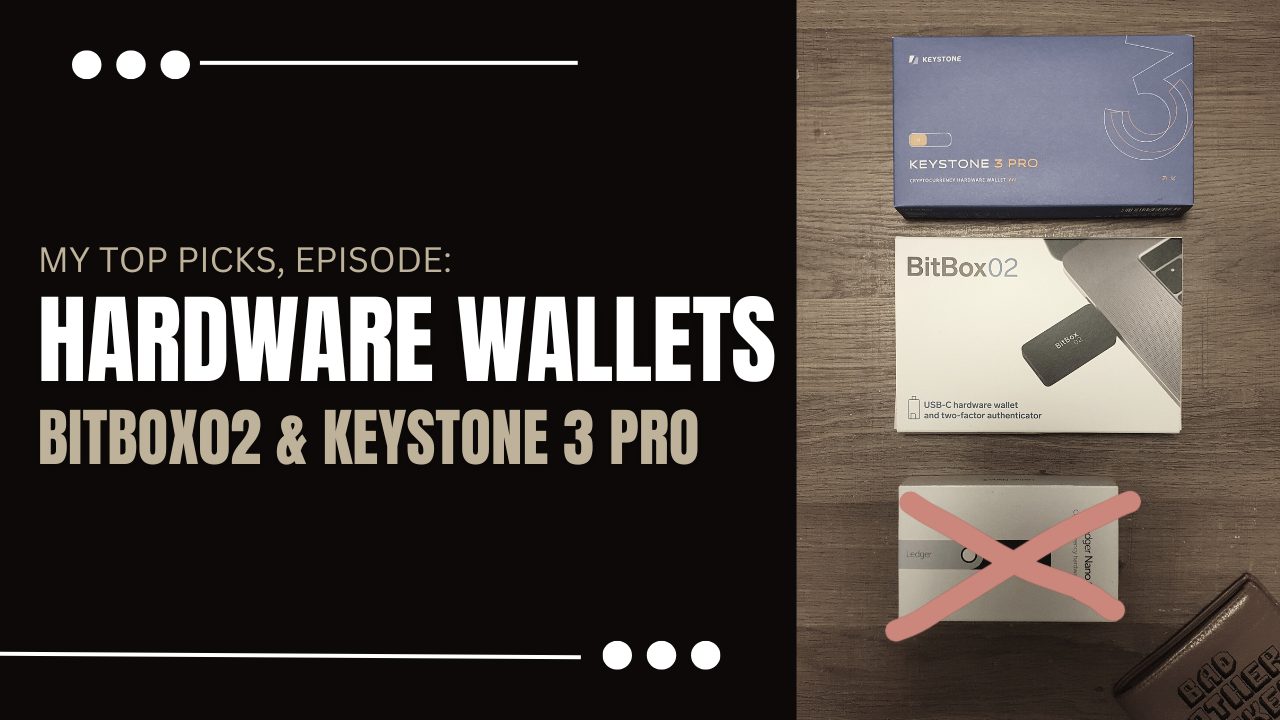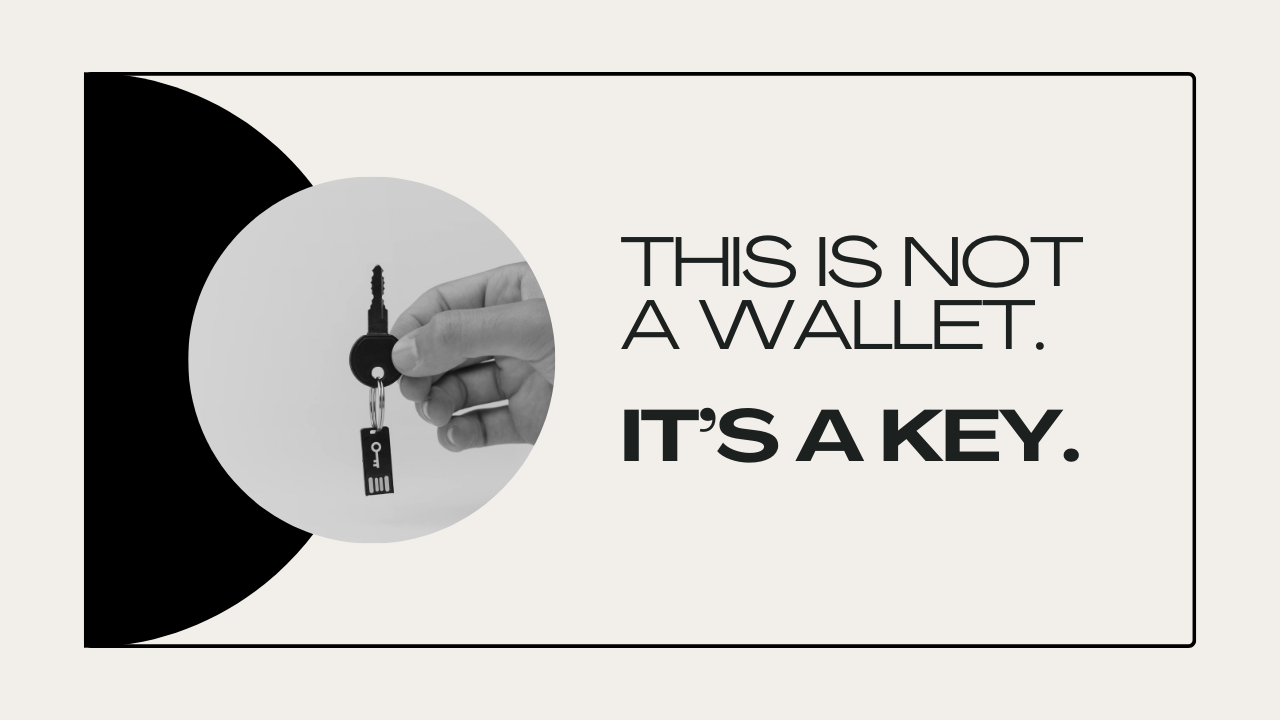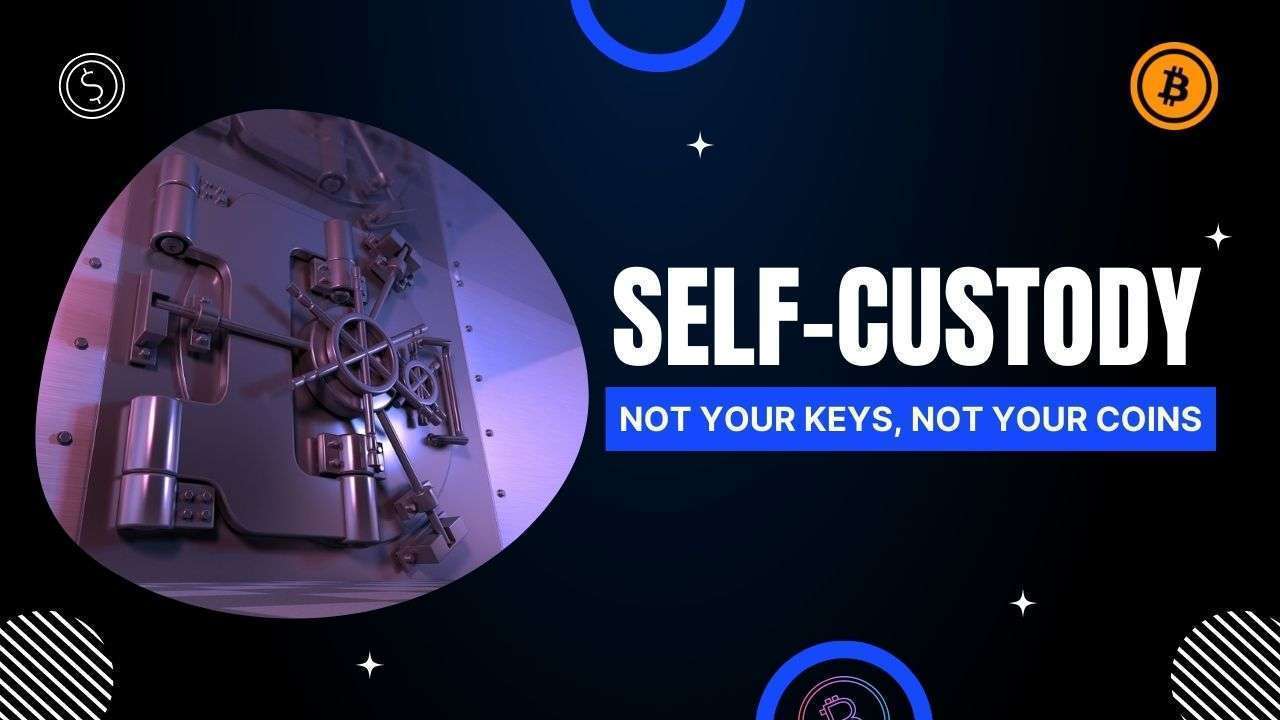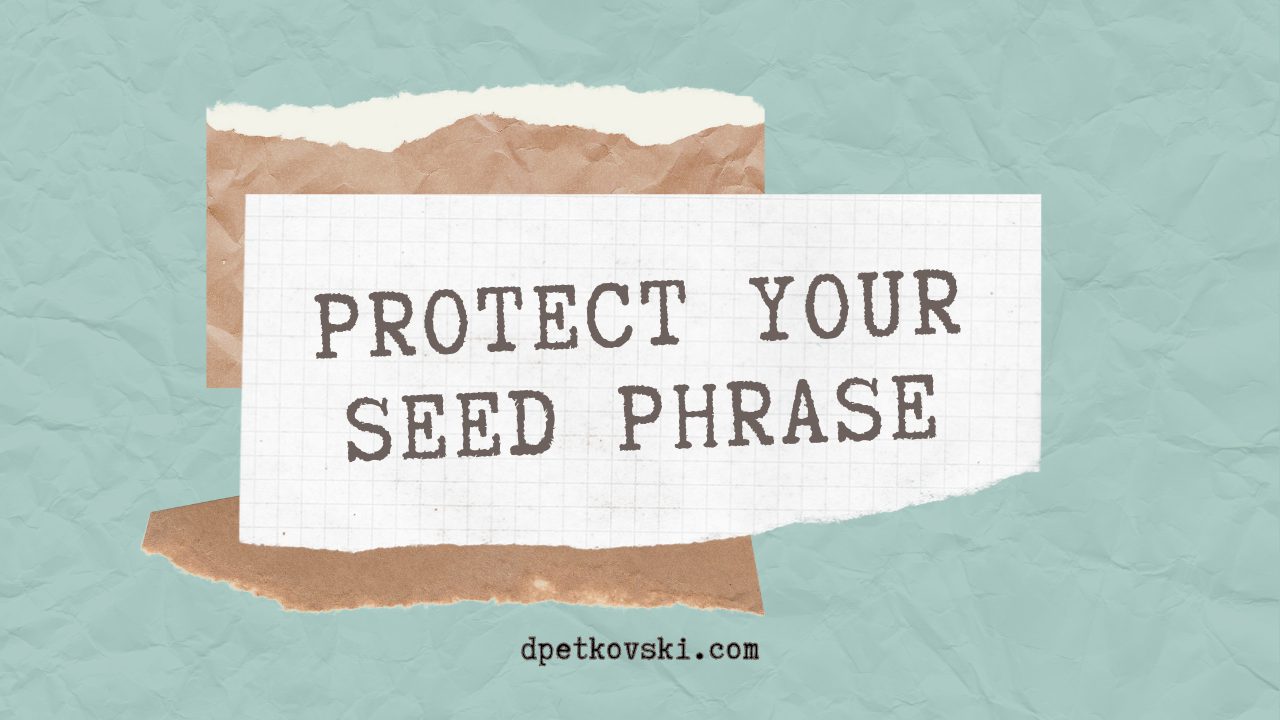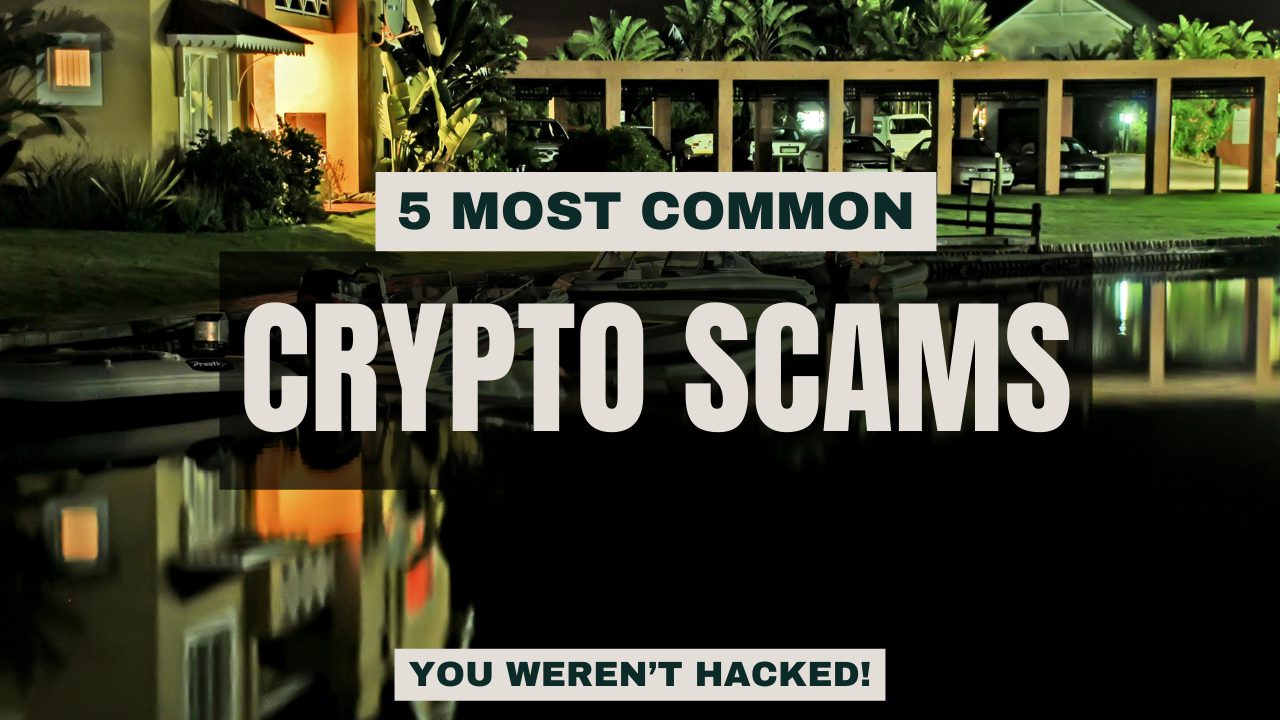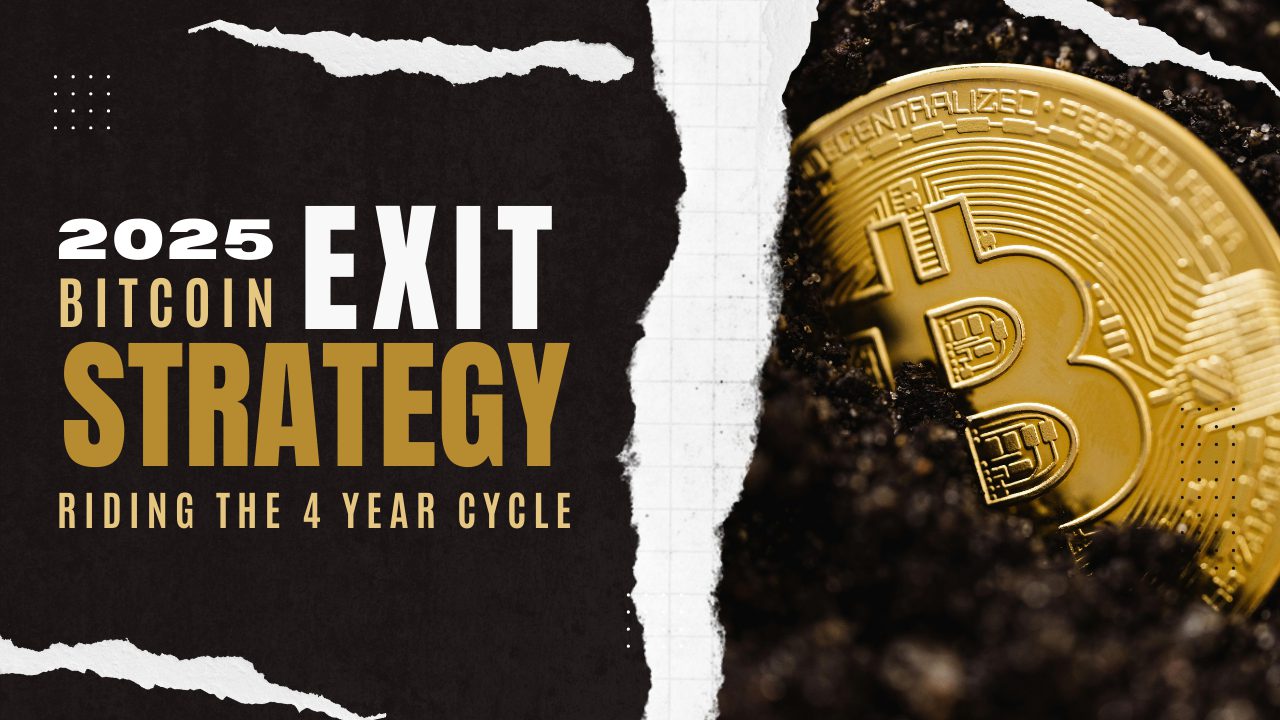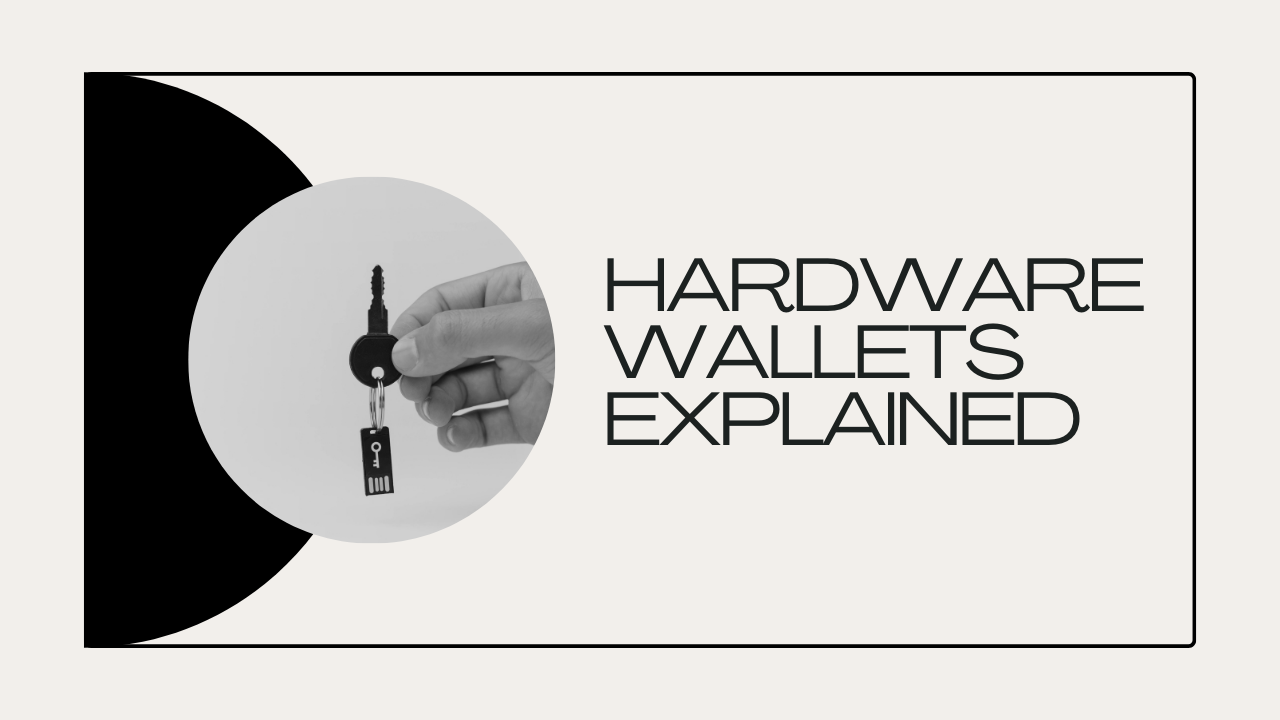
If you’re reading this, you probably accumulated sufficient amount to start worrying about security.
You also probably use an exchange to store your coins and understood that it defies the purpose of decentralization.
Lastly, you most probably heard the phrase “not your keys, not your coins” but are uncertain what it actually means.
Let’s start there.
Self-Custody Simply Explained
When you keep Bitcoin on an exchange, you’re effectively have 0 control over your money.
You’re basically trusting other people with it: the exchange can freeze your account, may be a scam, might suffer a hack, can go bankrupt, etc.
Instead of listing hundred different scenarios, I’ll encapsulate this risk in a single term: centralization risk.
Besides that, holding a decentralized asset on a centralized exchange defies the purpose of owning it.
The solution to this is to withdraw your money to a self-custodial wallet that you have control over. I explain the concept of self-custody in detail in this post: Self-Custody Explained – Not Your Keys, Not Your Coins.
In summary, it all boils down to having control over the private keys that control your account.
And while many self-custodial wallets are perfect for this, utilizing a hardware wallet gives an extra layer of protection on top of it.
What Is a Hardware Wallet?
The term is used to describe a physical device used for storing private keys in a secure manner.
The main benefit of hardware wallets over software wallets is that the private keys remain on the device. In other words: they’re never exposed to a machine connected to the internet.
While both hardware and software wallets protect users from centralized attacks and from giving away custody, a hardware wallet provides an extra layer of protection. Namely, it makes your wallet invulnerable to even more attack vectors: keyloggers, clipboard monitor malware, someone getting access to your PC, programs that can read browser extensions’ information, etc.
Note that a software self-custodial wallet is susceptible to all of these.
By using a hardware wallet, you gain total ownership over the assets protected by your private key and the private key is stored in a secure, encrypted, offline environment in which nobody but you has access to.
Managing The Private Keys
When you first turn on the device, a 24 word seed phrase will be generated.
Knowing this list of words gives you control over your private keys, and thus over the addresses.
So make sure to write them down because these 24 words represent your ownership of your assets.
Hardware wallet providers usually have a native app you can download. However, you can’t really make any transactions without your private keys, or in other words, without the device.
For example, if you want to send $BTC, you can input the destination address but it won’t be sent until you confirm the transaction on the hardware wallet itself. Or the technically correct way of saying this: the coins won’t be sent until you sign the transaction using your private key (which is stored securely, offline, and encrypted on the device).
Basically, the device has the authority over confirming transactions.
What If I Lose My Hardware Wallet Or It Gets Stolen?
Nothing, basically.
Someone might find it and there’s not much he can do with it. Your coins are not stored on the device, but on the blockchain. The device just helps you to access them – and whoever finds/steals it will need your 24 words to do so.
So, as long as you still have your private keys, you still have your coins.
You only lost a piece of plastic.
Get a new device and recover your accounts by using your seed.
What If Someone Gets My Seed Phrase?
If your 24 words get stolen and the thief knows what to do with them, then you’re at risk of losing everything.
“Not your keys not your coins” in full force. So make sure to protect your seed phrase.
The most common losses happen by people n00bs negligently sharing their words with scammers.
Some decide that they can’t bear this responsibility. But unfortunately, the alternative is keeping your coins on an exchange. And in that case, you don’t even own your private keys (and thus your coins).
So you’re at the mercy of how well some third-party manages their private keys.
And as we said before, it’s not a matter of trust.
It’s a matter of them being a target of someone with malicious intentions and your net-worth being a collateral damage of a centralized attack.
Protect Your Private Keys
So, ultimately, you need to protect those 24 words as best as you can.
Here are a few ideas that may be useful:
- Never share the words with anyone.
- Keep the piece of paper and its contents hidden.
- Don’t save your words online. That defies the purpose of cold storage. If you have a digital copy, you effectively have a software wallet.
- Keep a backup. If your house burns down, you won’t be able to recover your assets. Keep a backup at a remote location as well. Not digitally and especially not online.
- Set up accounts behind a temporary passphrase. There is an option to use a temporary passphrase – a 25th word that nobody knows if you even set or not, to get access to a completely new set of addresses. Keep a small amount in the accounts behind the 24 words and the majority of your wealth behind this passphrase. This way, even if you’re physically forced you to give up your keys, you’ll only lose a small portion of your assets – the ones behind the 24 word seed. Note: people using third-party custodians are also vulnerable to physical violence, but without a plan B.
I have more detailed recommendations for best practices in this post.
Yes, being your own bank is not easy.
But it’s a consequence of the decentralization and it should be praised rather than criticized.
This is what actual ownership looks like!
No intermediaries, regulators, or banks standing in the way between you and your wealth.
It’s beautiful…
Need More Info?
This post was more theoretical and aimed towards people who are still uncertain whether they should get a hardware wallet or not.
I’m sure that dilemma is now resolved.
 Husband & Father
Husband & Father  Software Engineer
Software Engineer 

